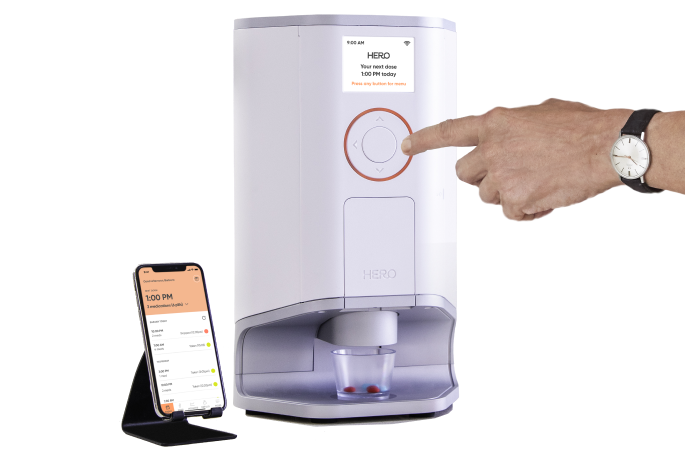The Power of Dietary Supplements in a Healthy Diet

Explore the world of supplements and their role in assisting with a healthy diet. Understand how dietary supplements, including vitamin and mineral supplements, can help fill nutritional gaps. Get insights on the safe use of supplements, and learn why consulting with healthcare professionals before taking dietary supplements is crucial for your health.
Understanding Dietary Supplements: An Overview
Dietary supplements, as defined by the Dietary Supplement Health and Education Act (DSHEA) of 1994, are products intended for ingestion that contain a "dietary ingredient" aimed at supplementing the diet. These dietary ingredients can include vitamins, minerals, herbs or other botanicals, amino acids, enzymes, and many other substances. They come in various forms such as tablets, capsules, gummies, powders, as well as drinks and energy bars.
What are dietary supplements?
Dietary supplements are products designed to complement your diet. They provide nutrients either extracted from food sources or synthetic, individually or in combination, in order to increase the quantity of vitamin or minerals consumed. This class of nutrient compounds includes:
- Vitamins
- Minerals
- Fiber
- Fatty acids
- Amino acids
Dietary supplements can also contain substances that have not been confirmed as being essential to life but which are marketed as having a beneficial biological effect.
Common types of dietary supplements: vitamins, minerals, herbs, and more
There are a wide range of dietary supplements available on the market. Some of the most common ones include vitamins D and B12; minerals like calcium and iron; herbs such as echinacea and garlic; and products like glucosamine, probiotics, and fish oils. Multivitamins are also popular and often include a variety of these ingredients. These supplements may help you get adequate amounts of essential nutrients if you don’t eat a nutritious variety of foods. However, they should not replace a balanced diet, rather, they should supplement it.

The Role of Supplements in a Healthy Diet
Dietary supplements, as the name suggests, are designed to supplement your diet, not replace it. They can provide additional nutrients when your diet might be lacking or when certain health conditions cause a deficiency. More than half of all Americans take one or more dietary supplements daily or on occasion, with common supplements including vitamins, minerals, and herbal products.
Supplementing your diet: When is it necessary?
Supplementing your diet may become necessary when you're unable to get all essential nutrients from food alone. For instance, Vitamin B12 mostly comes from meat, fish, and dairy, so vegans may consider taking a supplement to ensure they get enough of it. Pregnant women or women thinking about becoming pregnant should consider certain supplements such as folic acid. Adults, especially women, who don’t consume adequate calcium in their normal diets also may benefit from a calcium supplement. However, it's crucial to discuss with your doctor what supplements you're taking so your care can be integrated and managed.
The importance of a balanced diet: Can supplements replace food?
No matter how many supplements you take, they can't replace a balanced and varied diet. Foods provide greater nutritional value and macronutrients such as carbohydrates, proteins, and fiber that can't be replicated by supplements. A stroll down the pharmacy aisle will bring consumers face to face with a wide array of vitamin and mineral supplements. However, one must remember that they’re called supplements for a reason – they supplement the food you eat and were never intended to be the main source of vitamins and minerals. So while dietary supplements can help fill in the gaps in your diet, they cannot replace the need for a varied and balanced diet.
Potential Benefits and Risks of Taking Dietary Supplements
Dietary supplements are a popular way to enhance overall health and fill nutritional gaps in the diet. They can provide essential nutrients, such as vitamins, minerals, amino acids, and other beneficial substances. For instance, calcium and vitamin D supplements can support bone health, while fish oil is known for its heart health benefits. Imagine a busy professional who struggles to eat a balanced diet due to their hectic schedule. By taking dietary supplements, they can help to add the additional necessary nutrients that may be missing from their daily food intake.
How supplements can enhance overall health
Some supplements may play a useful role in maintaining and improving overall health. They can help meet daily requirements of essential nutrients, especially for those who have dietary restrictions or cannot consume certain foods. For example, vitamin B12 supplements are beneficial for vegans and vegetarians who may not get enough of this vitamin from their diet. Furthermore, certain supplements may help manage some health conditions. For instance, folic acid supplements are recommended for pregnant women to reduce the risk of birth defects. Let's say an individual suffers from vitamin deficiency in vitamin D due to limited sun exposure; a supplement can help maintain adequate levels in the body.
Understanding the potential risks and side effects of dietary supplements
Despite their potential benefits, it's crucial to understand that dietary supplements also carry health risks. They may interact with prescription drugs, leading to adverse reactions or reducing the effectiveness of medications. For instance, antioxidant supplements like vitamin C and vitamin E might reduce the effectiveness of some types of cancer chemotherapy. Moreover, excessive intake of some supplements can lead to harmful side effects. For example, high doses of vitamin A can cause headaches and liver damage.
It's important to note that dietary supplements are not intended to diagnose, treat, cure, or prevent diseases. Therefore, it's crucial to consult your healthcare provider before starting any new supplement regimen.
Complex med schedule? We solved it.
Hero’s smart dispenser reminds you to take your meds and dispenses the right dose, at the right time.

Navigating the World of Vitamin and Mineral Supplements
The world of vitamin and mineral supplements can be a confusing one, with a myriad of options available on the market. Understanding what to look for and how these supplements can benefit your health is crucial.
Decoding dietary supplement labels: What to look for
When it comes to dietary supplement labels, it's important to understand the information they provide. Labels list:
- Active ingredients
- The amount per serving (dose)
- Fillers, binders, and flavorings
The manufacturer suggests a serving size on the product label, but your healthcare provider might decide a different amount is more appropriate for you. Always consult with your healthcare provider before starting any new supplement regimen. Be aware of potential interactions with prescription drugs you may be taking. Remember, the term “natural” doesn’t always mean safe. Some all-natural botanical products can harm the liver.
Popular supplements and their benefits: From fish oil to folic acid
Different supplements serve different purposes. Here are a few examples of supplements and their purposes:
- Fish oil supplements have been linked to an 8% reduction in heart attack risk and a 7% reduction in coronary heart disease.
- Folic acid has been linked to a 20% reduced risk of stroke, particularly in regions where most people don't get enough folic acid in their diet.
- Calcium supplements, often combined with vitamin D, are essential for bone health. Studies have shown that these supplements improve bone health in both men and women and reduce fracture risk by 15% and hip fracture risk by 30%.
However, it's important to remember that while supplements can enhance a healthy diet, they should not replace food or prescribed medications. Always consult your healthcare provider before starting any new supplement regimen.
Navigating the World of Dietary Supplements: Labels and Regulations
Understanding dietary supplement labels
When it comes to understanding dietary supplement labels, it's essential to know what information is required and how to interpret it. The FDA regulates dietary supplement labeling, ensuring that consumers have access to accurate and useful information. Some key elements on a dietary supplement label include serving size, active ingredients, and any potential allergens.
To make informed decisions about supplements, consider the following tips:
- Look for the serving size and suggested use to determine the appropriate dosage.
- Check for any allergen warnings and for negative interactions with other prescription medications, vitamins or supplements.
- Research the active ingredients to understand their potential benefits and risks.
Regulations governing dietary supplements in the US
In the United States, the FDA regulates dietary supplements under the Dietary Supplement Health and Education Act of 1994 (DSHEA). This act sets specific guidelines for manufacturers and distributors, including:
- Regulating products so that they are not adulterated or misbranded.
- Evaluating product safety and labeling before marketing.
- Complying with Good Manufacturing Practices (GMPs) for quality control.
While the FDA has the authority to take action against unsafe products, it's important to note that dietary supplements are not subject to the same pre-market approval process as prescription drugs.
Voluntary recall and safety measures for dietary supplements
Although many dietary supplements are safe, there is always a risk of contamination or adverse effects. The FDA can remove unsafe products from the market, but this typically occurs after a problem has been identified. To assist with safety, consider the following:
- Look for third-party certifications, such as NSF International or USP Verified, which indicate that a product has undergone independent testing for quality and safety.
- Report any adverse reactions or concerns to the FDA through their MedWatch program.
- Stay informed about voluntary recalls and safety alerts by regularly checking the FDA's website.
By understanding dietary supplement labels and regulations, you can make informed decisions about the supplements you choose to incorporate into your healthy lifestyle.
Hero: Your Partner in Health Management
In the world of health and wellness, managing supplements can sometimes be a daunting task. As a leading healthcare startup, Hero provides an innovative solution to supplement management. Its smart pill dispenser, coupled with an connected app, offers an integrated approach to medication and supplement management.

How Hero can assist in supplement management
Hero's smart device is designed to help make supplement management easy and efficient. The device not only stores and dispenses your supplements but also reminds you when it's time to take them. It can hold up to a 90-day supply of 10 different medications or supplements, making it a potentially solid choice for those who take multiple supplements daily.
The Hero app further integrates this experience by offering features like medication reminders, missed dose alerts, and personalized adherence reports. It even lets you know if any pills are running low.
For instance, imagine you're taking a combination of fish oil, vitamin D, and calcium supplements daily. With Hero's system, you can load these supplements into the dispenser and set reminders for each one. Create the schedule in the connected app, load the supplements into their containers within the device, and click one button to dispense your supplements when the app alerts you that it is time for a dose.
Hero's pill dispenser and mobile app may be able to assist you with adherence to your supplement regimen. The app allows you to make real-time changes to your supplement schedule and dosages, giving you the option to build and track a schedule that aligns with your personal supplement plan. If you are considering ditching the pill box or pill bottles in favor of upgrading to a more modern system of medication management, Hero might be the right choice for you.
The contents of the above article are for informational and educational purposes only. The article is not intended to be a substitute for professional medical advice, diagnosis, or treatment. Always seek the advice of your physician or other qualified clinician with any questions you may have regarding a medical condition or its treatment and do not disregard professional medical advice or delay seeking it because of information published by us. Hero is indicated for medication dispensing for general use and not for patients with any specific disease or condition. Any reference to specific conditions are for informational purposes only and are not indications for use of the device.



